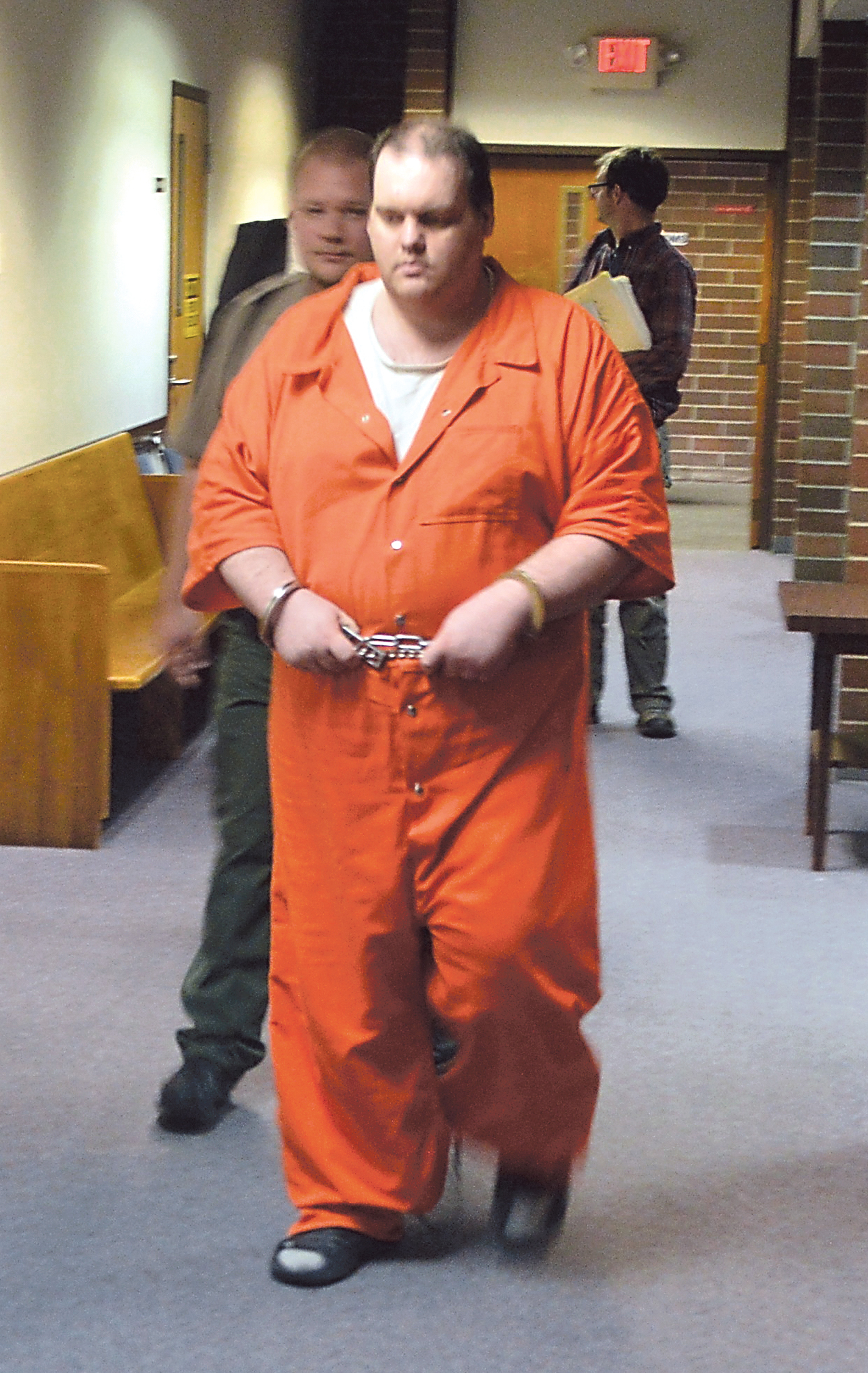PORT ORCHARD — Jury selection will start anew Monday morning in the double-murder trial of Michael J. Pierce after a juror’s question about the death penalty ultimately led to the dismissal of the panel Thursday morning.
Jury selection in the third retrial of the 39-year-old Quilcene man accused of the 2009 murders of Quilcene residents Pat and Janice Yarr started Monday and finished Wednesday.
During Jefferson Prosecuting Attorney Scott Rosekrans’ final questioning of the 12-member panel Wednesday, one juror asked if the death penalty was being sought in the case.
“I said, ‘The state of Washington has said I can’t go here,’ and kind of backed up because that’s a question the judge has to answer,” Rosekrans said Thursday.
“The judge said, ‘No, it’s not a death penalty case.’ You can’t say that.”
Pierce’s public defender, Richard Davies, said Thursday that after the response from Judge Sally Olsen in Kitsap County Superior Court on Wednesday, he asked for a sidebar to review the situation and to serve as an objection.
“Based on me alerting the court to the potential error by asking for a sidebar, [Olsen] gave a curative instruction indicating that she shouldn’t have commented on possible consequences and that the jury would have no role to play in sentencing,” Davies said.
Because a similar juror question and response in Pierce’s 2010 trial had resulted in a claim of ineffective assistance by trial counsel when Davies failed to object at the time, Davies filed a motion for mistrial Wednesday.
“So this morning, the judge said, ‘Let’s go ahead and start over now,” Rosekrans said.
Davies said Thursday that he feels Rosekrans ratified the response to the juror from Olsen.
Davies said in his motion that the move for mistrial was “so that the court can consider the alternative remedy of dismissing the entire venire panel and starting jury selection anew on the basis of the error that ensued with the court and the prosecutor instructed the jury that the death penalty will not be imposed in this case.”
“We’re disappointed,” Davies said Thursday. “The defense was happy with the jury we picked.”
According to both Davies and Rosekrans, the reasoning from case law that dictates a juror should not be told if a case involves the death penalty lies in that such knowledge might negatively impact the gravity the juror gives the case.
“The case law says if you tell jurors it’s not a death penalty case, they may not take it as seriously,” Rosekrans said.
“The fallacy there is that the jurors are still going to take this seriously,” he said.
“Give jurors credit; they’re a lot smarter than a room full of lawyers.”
Davies added: “It gives the potential juror an idea about the gravity of the decision they’re going to have to make.
“The appellate courts’ concern is that if you tell potential jurors it’s a murder case and not a death penalty case, they’re going to take their case more lightly and not render a proper verdict.”
Rosekrans was confident that the development would not delay the case greatly.
“We started jury selection Monday, and we basically had our jury picked by Wednesday afternoon, so we’ll get a jury picked.
“It’s better to go ahead and err on the side of caution. It happened; we’ll see you on Monday.”
Pierce is accused of two counts of first-degree murder and one count each of first-degree burglary, first-degree robbery, first-degree arson, theft of a firearm, second-degree unlawful possession of a firearm and second-degree theft.
Pierce was convicted in the 2010 trial by a Jefferson County jury and was serving a life sentence in prison when the state Court of Appeals overturned the verdict in 2012.
The next two retrials, in Jefferson County in July 2013 and Kitsap County this past March, ended in mistrials.
The first mistrial was called because a juror recalled seeing someone who might have been Pierce on the night of the murders.
The second was after Pierce was not given his anti-psychotic medication while he was in custody in the Kitsap County jail.
Pierce’s original conviction was overturned by the state Court of Appeals on the grounds that his constitutional rights were denied after his arrest and that Rosekrans’ closing argument in the original trial represented prosecutorial misconduct.
The Washington State Bar Association later said it could not find that Rosekrans had committed an ethical violation for speculating during closing arguments what the Yarrs and Pierce were thinking during the night of the murders.
Olsen denied in September a motion from Davies to dismiss all charges.
________
News Editor Michael J. Foster can be reached at 360-452-2345, ext. 5064, or at mfoster@peninsuladailynews.com.

